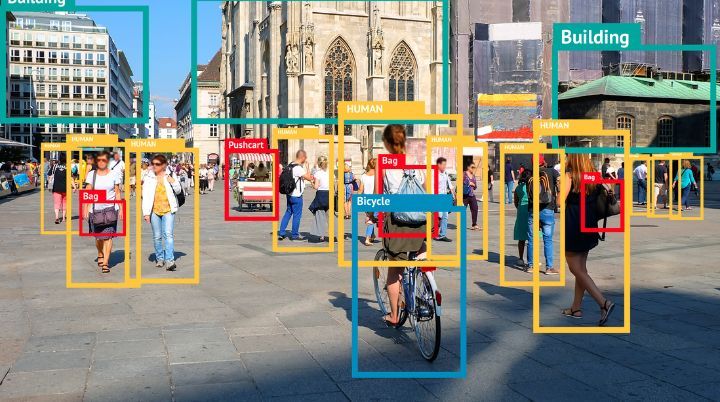Words by Hiroshi Sekiguchi, Chief Marketing Officer, I-Pro.
As the world turns its eyes to the upcoming 2024 Paris games, a hot topic has emerged around the use of video surveillance assisted by artificial intelligence (AI) technology, a measure approved by the French government.
While the legislation states the technology will use no biometric data, many of the concerns voiced around the issue equate AI with facial recognition, attributing capabilities to AI which it cannot yet deliver.
As the topic gains attention worldwide, stadium professionals of all levels must understand what AI is, and what it can and cannot do. AI technology can be a force multiplier to stadiums facing challenges in staff retention, fan behavior, and security wait times (identified by NC4 as the top challenges for stadium security), and help to improve the guest experience.
AI and machine learning
There are many definitions of AI out there. IBM defines it very generally as “the broad field of combining computer science and robust datasets to enable problem solving.” Other definitions introduce the idea of intelligence: “the theory and development of computer systems able to perform tasks that normally require human intelligence.”
We are still a long way away from true AI. Currently machines cannot give meaning to, or make sense of something, on their own.
Examples of AI-based technology in our everyday lives are Amazon suggesting a book we’d like based on past behavior, or ChatGPT writing a paragraph summarizing one of Shakespeare’s plays.
Within the broad field of AI, the technologies found in surveillance cameras are driven by machine learning and deep learning algorithms that use learned data to help cameras accurately detect and classify objects.
Working with video image data, machine learning uses statistical techniques to solve problems, make predictions, or improve the efficiency of specific, narrowly defined tasks. The algorithms can analyze the relationship between inputs and outputs to gain new insights.
Recognizing a human, vehicle or numbers on a license plate, or sending an alert when a human crosses a barrier that humans should not cross, are examples of what this technology can enable. Applications can be developed which use pre-programmed algorithms to discover patterns in data or trained to correctly recognize objects and their unique attributes.
In essence, deep learning today enables cameras to help humans do what they already do — monitor video footage looking for particular anomalies or persons of interest; only faster, and with greater accuracy, across massive data sets.
Facial Recognition
Facial detection is a unique technology used to match a human face from a video or still image against a database of faces.
Although deep learning algorithms are being used increasingly to enhance image resolution for facial recognition systems, facial recognition is a unique tool and should not be confused with the anonymous object data collected by AI-based cameras. In a public space, facial recognition systems ignore and do not recognize the vast majority of faces in their field of view.
When deployed, the application typically looks for a handful of banned guests or missing persons included in a pre-identified watch list. Once detected, a notification can be sent to operators to investigate further. At that point, the actual identification must be done by a human.
How AI cameras can help improve stadium security and operations
While security is critically important, a stadium needs to deliver on the entertainment expectations of the audience and the content providers. Security is part of that expectation, and achieving an ideal balance between safety and experience is the goal.
Where AI can help is in identifying potentially disruptive situations and alerting operators in real time. A decreased response time minimizes the impact of the disruption while accelerating any post-incident response.
Disruptive situations can range from fights and medical issues to suspicious objects left unattended. Post-incident responses can be anything from locating stolen merchandise to a review of video evidence following a brawl or field-rushing, identifying participants after the fact.
The AI analytics most useful for stadiums are those geared toward finding people, vehicles, and objects in places they shouldn’t be.
Algorithms based on machine and deep learning can detect attributes such as vehicle/clothing colors, gender, age, glasses, hats, bags being carried, and more. The ability to identify unique attributes allows analytics to be further defined and customized to the stadium’s exact needs.
If someone is crossing into the pitch from the stands, for example, an AI-based camera might send a notification directly or via a video management system (VMS) to security operators. If a line at a food counter or entrance gate gets too long, it can notify teams to open another window or investigate and address the back-up. If there’s a disruption in a particular location, real-time alerts let operators zoom in on the closest camera and determine whether a guest is starting a fight or having a medical emergency.
AI-based cameras can also accurately count people entering the venue, and data can be acted on in the moment or archived and analyzed for future insight. These processes can also make evidence more useable and searchable.
Cameras in and connected to a stadium’s network record massive amounts of data during an event, which is largely unusable owing to the sheer quantity of footage. With the additional descriptive metadata captured by an AI camera, a VMS can find all occurrences of a person in a red shirt and white shoes carrying a bag in just minutes, if not seconds. AI enhances security and allows operators to do more with less.
Considerations for implementing AI
When considering AI analytics, stadiums should be aware that the implementation of the technology can vary widely between manufacturers.
The powerful descriptive metadata captured from an AI-based camera is useful only if it can be interpreted and displayed within a customer’s chosen VMS or network video recorder (NVR). It’s imperative to ensure that the VMS supports all the data from any camera system they choose to deploy.
To protect against cybersecurity breaches, networked cameras and infrastructure should conform to industry standards like FIPS 140-2 level 3 encryption and level 3 compliance, vandal-resistant technology, and identity-based authentication. Most importantly, AI analytics must protect individual privacy, adhering to privacy guidelines and best practices such as those outlined by general data protection regulation (GDPR)
Privacy protection technology exists today and is available as a built-in feature for cameras without any need for additional servers or processing power.
Makers of security cameras and systems should develop tools that include privacy protection by design. Cameras should include features such as automatic anonymization of faces and bodies standard, to ensure that organizations never have to compromise either privacy or security.





